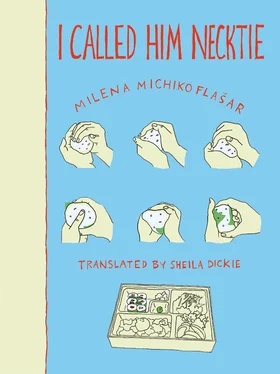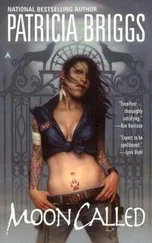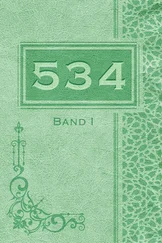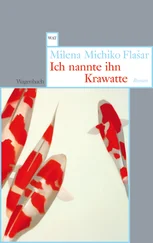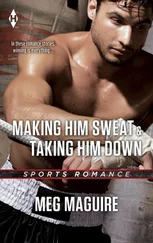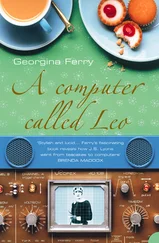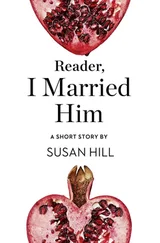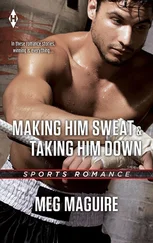But.
But what?
I felt dizzy. The idea of walking past tables and chairs, across a sweaty room, sitting down, meeting the gaze of a waiter, sipping from a glass that God knows who had sipped out of before. Still trying to get used to the park and our friendship, this idea was beyond the bounds of possibility and my self-confidence.
It’s just that. I stammered. Outside there’s more room between people.
I understand. He stood up. Then until next time the sun shines. It was six o’clock. On the other side of the card I read his name, Ohara Tetsu, and his address. A business card. I am a coward, I thought. And: Another object which, in my room, in the drawer, under the age-old fossil. I did not complete the thought.
52
Quick, quick. Through the foyer. Who was smiling there? The picture of the untaken trip to San Francisco hung on the wall, carefully straightened and dusted, as if I hadn’t turned it around. Father’s hand on my shoulder. Mother’s “cheese” cried out from the frame. Me, pimply, crooked cap, two fingers spread in a victory sign. A frozen moment. A grain of sand in the hourglass. Soon it would slip through the narrow waist. A few grains of sand later and I would shake off Father’s hand. Mother’s “cheese,” it would collapse. What’s the matter with him, the boy. Let him be. It’s a phase. The truth is: They would rather not know. The truth is: I would rather not let them know. We had struck a pact: Better not to know anything about each other. And this pact is what holds families together for generations. We wore masks. Our faces no longer recognizable underneath, for our masks had grown onto us. It hurt to pull them off. It hurt so much that the pain of never meeting face to face was bearable, compared to the pain of showing your true face. Already this me in the photo knew that. It knew there’s no better place to hide than in a family, the ideal hiding place. It is the empty yellow-edged square that remains when you take a picture off the wall. I shoved it silently in the trash by the door. Crept back across the foyer into my room. Only after the door closed behind me did I ask myself whether my hikikomori identity, my complete indifference to the world, was also a masquerade. My answer: I am tired.
53
Two days passed. Drumming raindrops. Through the gap in the curtains I saw that the sky was sewn up. No tear in the clouds to be seen. I ran to and fro. An animal in a cage dreaming of the wide open plain. Again and again I brushed against the cage bars, cold iron on the pelt of longing. On the third day I outwitted myself and broke out. The cage had just been in my head.
The water smacked down from the overhanging roofs. I ran, the umbrella slanted in front of me, in wet shoes. MILES TO GO. I intended to walk past it at the very least. Past the flickering illuminated letters and perhaps catch a fleeting glimpse. Perhaps. With this Perhaps in my head I ranged like an escaped animal, a lion maybe, or a panther, through the wind and rain lashed streets.
It must be up there. The Perhaps was in my chest and from there had penetrated to all parts of my body, pumped me on, up to the door, and past it, around the corner, around the block, and again: Past it, around the corner, around the block. I can’t say how many times. In my memory I walked for miles. When I finally touched the handle, cold iron on a longing hand, I was exhausted as if from a long journey.
A cloud of smoke in the cafe. Gentle clink of glasses. A subdued nothingness, nothing. Someone was on the phone. The melting of ice cubes. Crackling. The lighting was muted. Hiro! His voice was a thread. He reeled me in. Come and sit down. What will you have to drink? A cola! He snapped his fingers. Good to see you here. I sank into the soft padding of a leather armchair.
54
He looked different from in the park. Bigger in some way. Without the sky above him he was a bigger man. While I, growing small and smaller, didn’t know where I should look. With the chilled glass in front of me, I sensed I had walked into a trap. What did I really have to do with him? How had it come to the stage where I, with my neck in the noose, was listening to a trumpet alongside a stranger, surrounded by strangers?
Simply fabulous. He swayed to the rhythm of the music. You lose all sense of place and time. What’s the matter? Are you feeling sick? You look so pale! What can I do? What can I get for you?
I waved him away.
But of course! You’ve taken a leap into the unknown! Don’t worry, now you’ve done it. Set your mind at rest: Nothing will happen. You’ll see. This is not the sort of place where anything happens, and everyone who comes here, comes because it’s like that. You step into a capsule of music bound by neither space nor time. Why do you think I chose this café? Well, just because I was sure it would be like your room. That’s better. Now you’ve got a little bit of color in your cheeks again. With these words he grew smaller, I became bigger, until we assumed our original size again. What disturbed me now was simply understanding how much courage there was in me. It needed courage to come here, to trust him.
55
To want a love that can’t be true. A throaty woman’s voice.
Kyōko’s favorite number. He laughed. The song she puts on when she wants to cry. Funny, isn’t it? Sometimes she likes to lie flat on the floor and soak it with her tears, over and over again. She describes it as a sort of cleansing. It cleanses her eyes, she says, afterwards she can see more clearly. She doesn’t cry out of sadness. She cries to reach a clearer insight into the substance of life. The eyes are the windows, when she says it, it sounds like a new or recently rediscovered proverb, from which the soul shines. I wonder whether I want to understand that? Whether I can stand it?
We were brought together by a matchmaker. I was shown a picture of her. Twenty-three years old, typist, likes reading and singing, draws. The father a bank official, mother a housewife, no siblings. That’s how she was described to me. Fine face in the photo, hands neatly folded in her lap. Only the hairdo! Not particularly flattering. I agreed to meet her, without having any particular image of her. She pleased me and she didn’t please me. Basically I gave in to pressure from the family. I was twenty-five and had a well-paid job. What was missing was a wife and child, a comfortable home. Judging by the example set by my parents, that was neither desirable, nor was it undesirable. It was simply what was expected of me and what I expected of myself, because you’re not complete as a man if you have no one beside you.
56
We met for dinner in a hotel. My parents, more nervous than me. Okada-san*, the matchmaker, with the corners of her mouth pulled up in a spasm. A wax doll, she could at times be very, very soft, then very, very hard. I found her simultaneously friendly and unfriendly. Some people are like that. They leave you unsure as to how to take them. Ah! There you are now! She waved with her waxen hand. Matsumoto-san! A stiff movement. I stood opposite a woman who bore not the slightest resemblance to the woman in the photo.
Not even close. He laughed out loud. She behaved like someone who has resolved not to be loved. Her lips pursed, she looked me up and down and said: There you see again, how you can be deceived. A photo is only a copy after all. The original is equally uninteresting. She said it with a smile. That hit home.
She likes reading and singing, this was intoned by Okada-san with particular emphasis. Most of all, interrupted Kyōko, I like books and songs which deal with marrying off a daughter who does not want that. Embarrassed silence. Okada-san dabbed her forehead and eyebrows with a handkerchief, the parents stabbed awkwardly at their plates. And in case you hadn’t noticed, Kyōko spoke with her mouth full: I’m wearing a wig in the photo. I choked. Coughed. She jumped up and dealt me a blow on the back. So now you know, I can hit hard. I can do more than read and sing. I can, if it’s needed, deal you a blow you won’t forget so quickly. Oh how nice, intervened Okada-san, she has presence of mind. A quality often missing in young ladies. I broke into uncontrollable laughter. Forgive me! Nothing to forgive. A man should not apologize for his laughter or a woman for the tears she weeps. Sometimes, Kyōko put down her knife and fork, I have the urge to lie down on the floor and soak it with my tears over and over again. Can you understand that? Can you bear it? She furrowed her brow fiercely. Her face, her very own, propped up, chin on hand, scrutinizing me directly. Yes I can, I replied. I want to try. Surprised, she said: You fool.
Читать дальше
